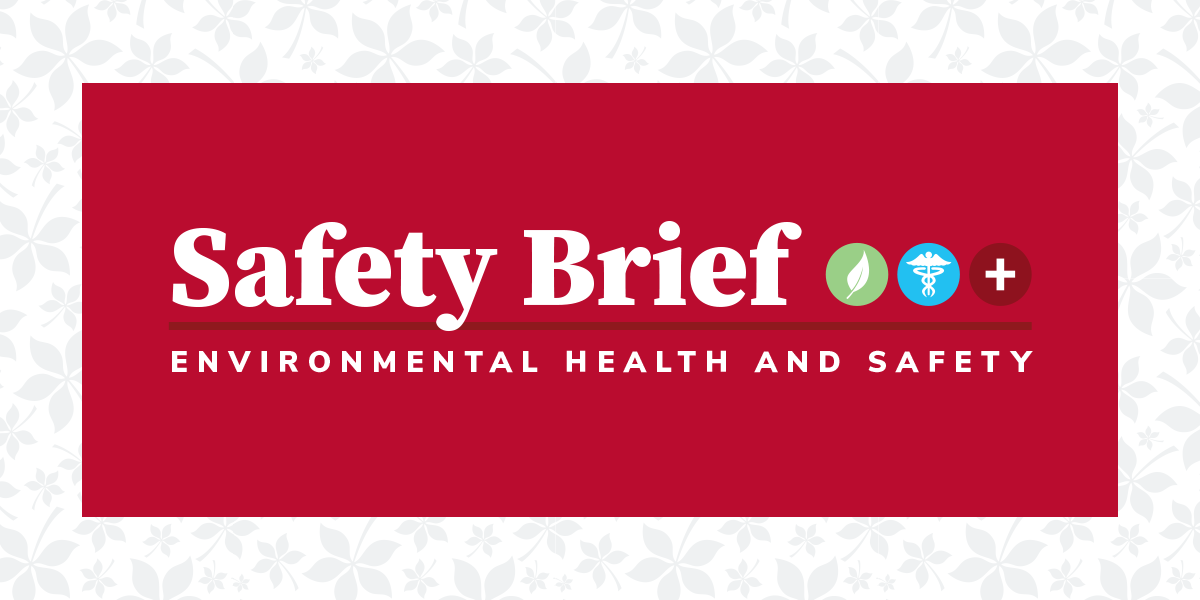Bloodborne pathogens are disease-causing microorganisms that are found in blood and other potentially infectious body fluids. Here are some tips on how to stay safe when coming in contact with blood or bodily fluids:

Ohio State is in the process of revising websites and program materials to accurately reflect compliance with the law. While this work occurs, language referencing protected class status or other activities prohibited by Ohio Senate Bill 1 may still appear in some places. However, all programs and activities are being administered in compliance with federal and state law.